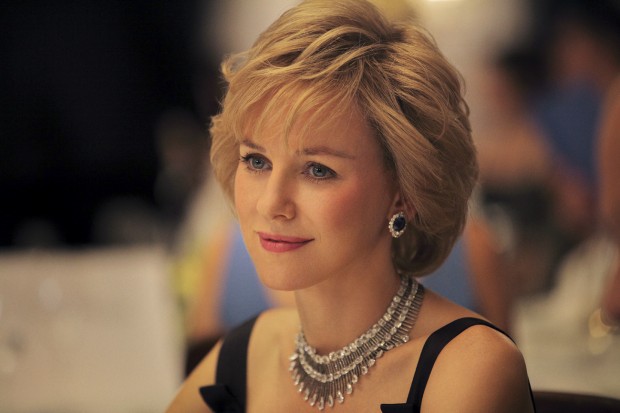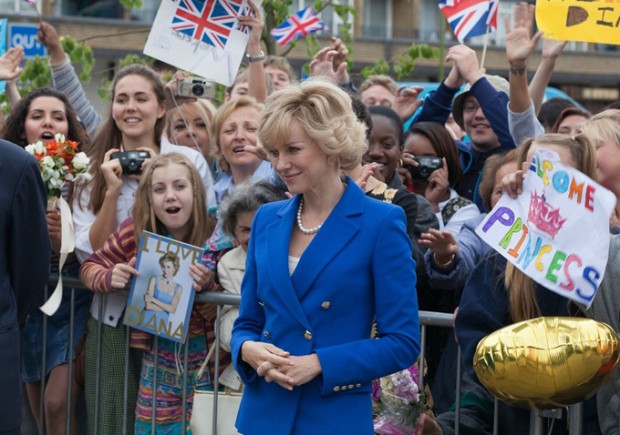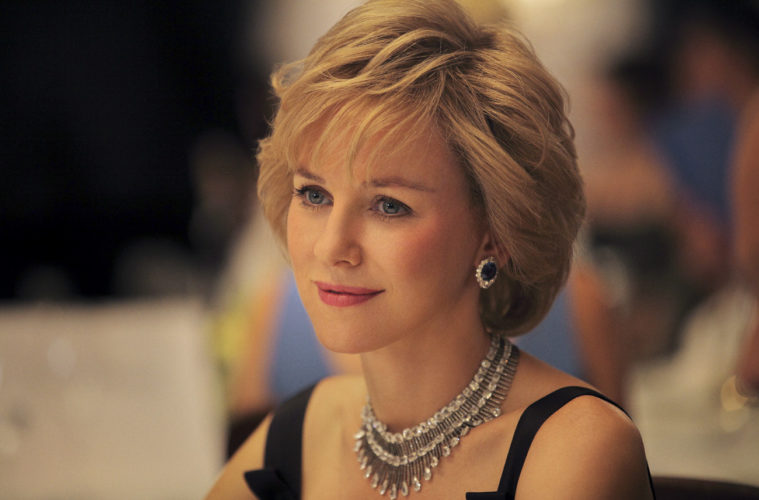
Whether it is the Five Minutes in Heaven‘s lesser-known subjects or Downfall‘s depiction of the final days of Adolf Hitler, director Oliver Hirschbiegel is experienced in the biopic field. His latest, Diana, currently in limited release, focuses on the late Princess Diana of Wales (Naomi Watts) and her secret love affair with an Indian immigrant surgeon, Hasnat Khan (Naveen Andrews of Lost fame).
I recently had a chance to speak with Hirschbiegel about the reaction all over the world, whether he sees the possibility of constructive criticism from reviews, what kind of ratio he was looking for in terms of an actress that could act versus how similar to Diana she looked, whether there were any animals left out of the film, physical locations, about approaching Hasnat Khan before making the film, and much, much more. Read on below for the full interview.
The Film Stage: It’s very nice to get to talk with you. I always am wondering how the day has been going for the interviewee. So, how has the day been for you?
Oliver Hirschbiegel: I’ve had very good interviews so far, I must say. Very good questions and I like the approach. The way people look at the film. Americans have a different reception to those things. It might be that an American’s relationship to the concept of romantics or emotion… the Germans are big on that and the Americans have it, too.
Right. Right. And the British, it always seems, like being aware of the fact that they aren’t very emotional. They’re self-deprecating along those lines, even. Emotions and feelings? That’s for everybody else. Not for them.
Yeah, it scares them a little. But then again that’s a source of some of the greatest sense of humor in the world, as well. The sarcasm and irony. Sometimes it helps and sometimes it gets in the way.
While I’m watching this movie, I’m keenly aware of the fact that it appears no one really has a pet. Did Diana ever have anything besides her boys? She never had a cat or dog?
No, no. They never had a pet. But it’s funny that you should mention that: if they had a pet, I certainly would have put it in. We know the Queen has lots of dogs.
Yeah. The corgis.
Charles, of course, has lots of dogs. For hunting. I think the whole family has lots of animals, actually. They’re mad about horses. But Diana was the complete opposite. She was scared of horses. She didn’t enjoy riding them. There were no pets. And of course, for Hasnat Khan, there was no room for pets. He was a doctor. He was working shifts. He would hardly find time to meet the woman that he loved. But that’s an interesting question, really. I haven’t had that one before.
 Another thing that I’m sure you’ve been asked before is how you landed on your lead actress, Naomi Watts. But I’m very curious about the women that didn’t end up being cast. Did you go in with a ratio of how close you can get them to look like Diana versus how good of an actress she is?
Another thing that I’m sure you’ve been asked before is how you landed on your lead actress, Naomi Watts. But I’m very curious about the women that didn’t end up being cast. Did you go in with a ratio of how close you can get them to look like Diana versus how good of an actress she is?
Well, my first instinct was that I don’t want it to be a look-alike contest. I was even willing to go as far as having an actress that has dark eyes but be able to pull it off. The first name I ever wrote down was Naomi because I knew she would be the perfect choice. But of course you look at other actresses as well. Especially when I found out Naomi wasn’t available. As I suppose you’ve heard, I was talking to Jessica Chastain at the time. Who doesn’t look like Diana at all. But that didn’t go very far because she decided not to do this one nor the one with Tom Cruise [Oblivion] because she went to do the film with Kathryn Bigelow [Zero Dark Thirty].
So, at the same time that I got that news, and I was already thinking about others, Naomi got back to me and said that her project had fallen apart and that she could do my film. But she wasn’t sure. So I went to meet her and talk about it. Seeing her, I just knew she was perfect. But she doesn’t really look like Diana, either. She has the ability… she’s a chameleon. She becomes the character. She studies all the mannerisms. She’s like an athlete. She trains for these things. But what really makes it work is she takes it from inside. If you look at Downfall, Bruno [Ganz] doesn’t really look like Hitler. While we were doing it, he became Hitler. And she does the same thing, I think. She creates the same energy.
I think the more time you spend with someone on camera, being that persona, that’s what helps. After a while, you give in to the fact, “OK, she’s playing Diana whether I like it or not.”
[Laughs] Yeah. It’s an energy thing, really. What we do is energy work, at the end of the day. I mean, Chaplin showed us. He would never change his clothes in his early films. He would just take off his hat and put on a captain’s hat and before you knew it, you bought it. He was a captain of a ship, right? It’s sort of the same thing. It’s my preferred kind of acting, really. When the energy is just right, the actor makes me forget that I’m watching him pretending to be instead of being.
So, this story really is about the love affair between Hasnat Khan and Diana. He’s obviously a real person. So I’m curious if you reached out to him at all before making this film or did you just kind of approach it that it was true, it’s out there, and let’s just make a movie?
Well, the first draft of the script was developed in collaboration with Kate Snell, who had written a book. And she has been in touch with his family constantly, but he didn’t ever want to engage. He knew it was happening but he didn’t want to be a part of it. As for me, as a storyteller, like with Five Minutes in Heaven, which is based on these two real-life characters, I can’t meet the real people. It would make me feel emotionally involved on a personal level and would have stood in the way of my artistic interpretation or expression.
But you do as much research as possible. I met lots of people who knew him. People who had been close to Diana — like Simone Simmons, for instance, who Diana told a lot of details to, some of which are in the film. Then bit by bit, the more research you do, you get a better idea about these characters. Then you either recreate if you know or create if you don’t know, like very intimate scenes in the bedroom. You just try to hit the spirit of the characters and the spirit of the relationship.

It looks like you filmed on real locations. How much of it was the actual location and how much was dressed-up?
It’s all real places. Of course, the royals have never let anyone shoot within their palaces. So I had to find a grand house that inside and outside sort of met that architecture of the actual palace. But it’s a real house, really. We refurnished it and remodeled it. Same with the flat. It’s a real flat. It’s not really in the area of where the real flat was because it’s too posh now. But it meets the quality of what it was. It was this tiny little place. But it was very important to do as much on location as possible because I’m using the energy of the rooms. On stage, that’s a bit more difficult. You have to create that energy. But if you find the right room at an existing location, you already have an attitude you can work with.
And those tight quarters have that energy built in because they’re not meant to be movie sets. They’re not meant to have the lighting structures and everything else, so it becomes a bit more intense.
Right, yes.
I know this is a tiny detail, but period films always seem to have fun with getting details correct. So, the cell phones in the film. Were they functional? Were they just props?
Ah, well, the funny thing is I think we used eight different models. Two of those would still be working. They wouldn’t really have reception, but they’d still be working. They would show the digits if you dialed them. The others were simply dead. [Laughs].
You’ve toured the world with this film. You seem to get a broad range of reactions. What has been the most surprising or most consistent reaction you’ve gotten from this film?
Well, there really hasn’t been a lot of consistency. As you might have heard, the UK press went into a hysteric frenzy it seems. They hit at the film as much as they could. The weirdest things happened. Right after the premiere, the Evening Standard wrote a very good review. Gave us four and a half stars or so. Only two weeks later, when the film actually released, they decided they had to slaughter it as well. So it seems there’s a weird collective thing going on there. I don’t want to say orchestrated [laughs], but there was a feeling that it was all in synch. Weird! Most of it being polemic. Which is not polite. As a filmmaker you like a good critic. It’s absolutely OK if a critic doesn’t like my film. But you want something written dealing with the way you staged things, or the way the film does or doesn’t work. But I hardly ever got that.
So that was the English response. Very mixed in France. About half and half. But the audience didn’t really respond that much. Then again, Denmark, number one for four weeks. Portugal? Hugely successful. And all of the East. Poland, Slovakia, Romania, Croatia… all these countries, it really did great business. So it’s surprising. It seems from territory to territory, some audiences are more open to romance. This isn’t really about Diana. This is more of a universal love story. It has a pace, if you will, that isn’t what most of other films these days deliver. If you had asked me, I would have expected that in the East, they would be after more hard and fast, action-driven films. But it seems to be the opposite. It’s a first for me, really, because reactions are really different. [Laughs]
For my final question, I’m curious about your relationship with reviews. You spoke about it briefly just now, but can you expand on that? Do you see it with the possibility of it being constructive criticism or is it just part of the job?
Well, to be honest, the writing I learned the most from were smartly written reviews that did not really like the films that I’ve made. [Laughs]. It may sound strange but I’m learning from reviews, if they’re smart. And then, if I have a choice, of course often the ones that are ambivalent, shining the light on different aspects… good ones, bad ones. But that’s not only in regard to my own films. I like to read reviews about other films. It’s fascinating. Let’s take the Refn film…
Only God Forgives?
Yeah. Only God Forgives. The Guardian gave it five stars. It was a raving review. It was a hit. Then Time Out, who are really good. They have really good writers as well. They gave it one star. They were equally, smartly written articles. That’s fun. You go, “Oh, f-ck! This is interesting. Look, sounds interesting. I better get a ticket and then watch it.”
Diana is now in limited release.

